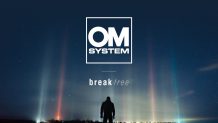Presenting on behalf of the DPDA, Gary Williams, PE, Paper Scientist of InfoPrint Solutions Company reviewed the CTP research data with leading industry experts gathered at this International Deinking Symposium. “Our first study was intended to prepare a baseline for future testing of inkjet prints. We were pleased to learn that in this baseline case, nearly all samples were successfully deinked in test conditions that included bleaching”, said Williams.
The test samples were printed using standard aqueous dye based inkjet inks on uncoated woodfree paper. DPDA members prepared blind samples using 3 representative dye-based inksets for the study and tested under conditions designed to be representative of current deinking technology for processing mixed grades of recovered paper.
In the study, nearly all colorants were successfully deinked when hydrosulphite bleach was added after the repulping process. In one case, ink colorants were successfully deinked using peroxide only, which is a typical chemical used in the repulping step. In both cases, the bleached pulp met the deinked pulp quality requirements.
“This is very encouraging as a first study” said David Hatfield, R&D Manager for Kodak. “It provides some fact-based data that confirms what we have believed from over 40 years of inkjet printing. Most commercial recycling systems are robust and we have yet to observe a failure in any recycling system worldwide.”





